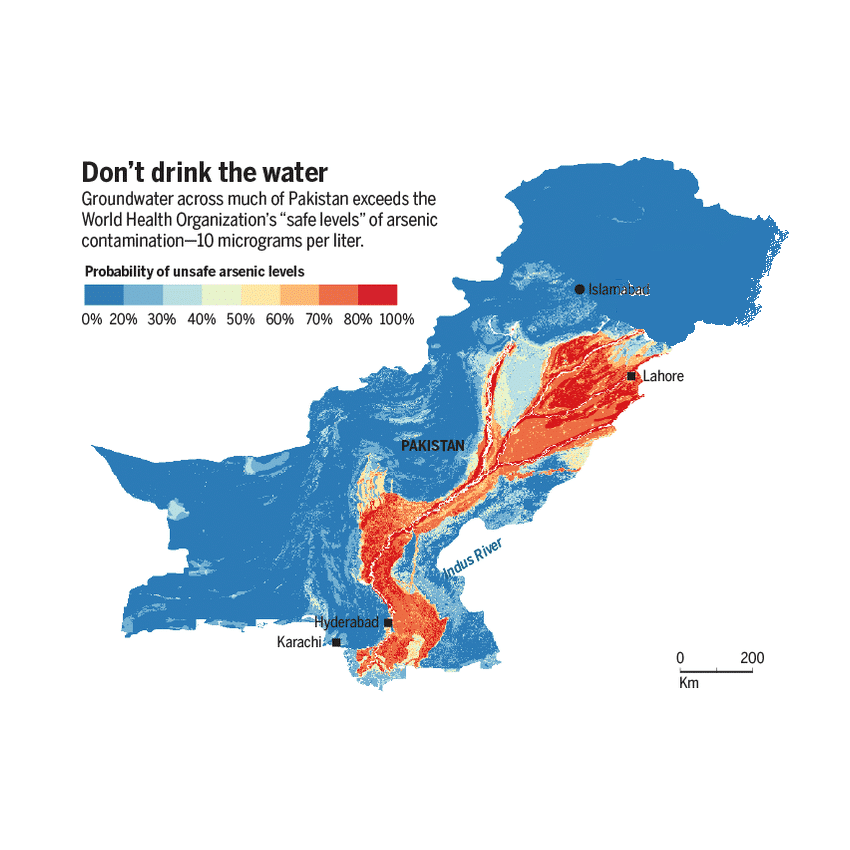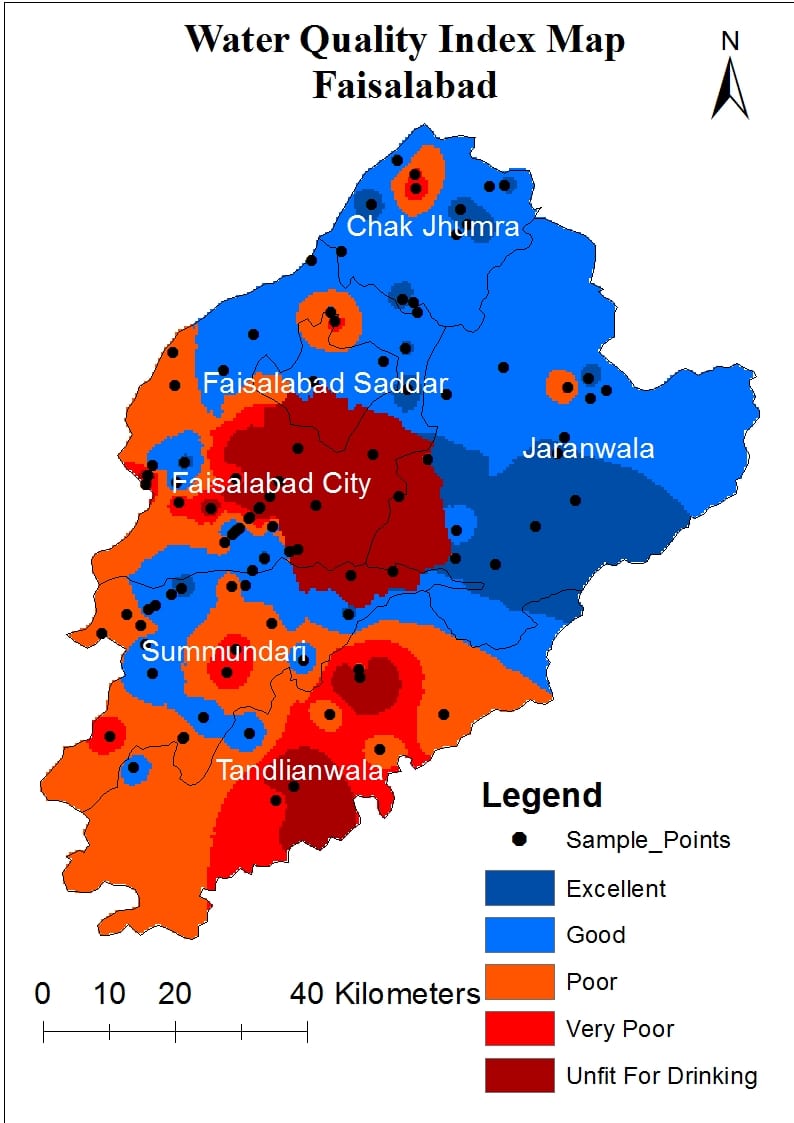Higher concentrations of Arsenic in drinking water have hazardous effects on the human body. Some of these harmful effects including cardiovascular diseases, skin cancers, skin lesions, neurodevelopmental delays and whatnot.
It can prove to be lethal if a very high amount of the metal contaminates the drinking water. Pakistan’s situation is extremely alarming – more than 60 million people are exposed to arsenic-rich contaminated water.
Earlier a study published by Pakistan Council for Research in Water Resources (PCRWR) said that 72% of water supply schemes in the country are functional and 84% of those had supplied water that was not fit for consumption.
According to the map produced by Science Mag, the majority of Punjab, particularly Southern Punjab, is exposed to unhealthy water. Sindh also suffers from the same issue all along the Indus river.
The recommended limit for Arsenic is 10 micrograms per litres of water, as per the World Health Organization. The regulatory body had warned in 2014 that 200 million people have access to contaminated water, most of them from Bangladesh, India, Vietnam, and Nepal.
Previous studies carried out in Pakistan revealed high levels of the metal in groundwater however, its extent was unknown.
Findings
The author of the study, Joel Podgorski’s team collected 1200 samples (3-70-meter-deep wells) from all over Pakistan and the spatial processing performed on the data revealed shocking results.
- 2/3rd of the samples were found contaminated
- Above 200 micrograms of arsenic content was found per litre along River Indus Valley
- Areas having higher Ph (acidic) and near Soils younger than 10,000-year-old had more arsenic content than the older soils
- Around 60 million people use five times higher arsenic content (50 micrograms per litre) than the WHO threshold
- Contaminated water is found in almost all parts of the country
Expert Opinion
Experts hope that the Pakistani authorities will take action to reduce the risks of this health hazard.
Richard Johnston, a public health engineer at WHO says, “It’s a reminder that arsenic remains a serious public health threat in drinking water”.
Charles Harvey, a hydrogeologist at MIT says, ““People should be aware that water in their well has high amount of arsenic”.
Another hydrogeologist, Peter Ravenscroft believes that such maps need the attention of policymakers for the greater good of their nation
“Maps like this have a big impact”.
Another recent study done by the students from National University of Sciences and Technology showed the overall Water Quality Index of Faisalabad district.
This map clearly depicts how bad the situation is in Faisalabad. 50 data samples, which were provided by PCRWR, were used for this study. Geospatial interpolation produced these results, which is quite alarming.
Via ScienceMag
























Good Governance
Pity
Dear Admin!
Kindly add complete map of Pakistan. Kashmir is totally missing in this map.
Thanks
So this is the whole issue in this post?
yes this is whole issue ……Indian agent
hahaha…people dying on arsenic doesn’t matter but kashmir should be on the map shown on propk. Stupidity at best!
tu ab baray wali lay a …
Yes it is an issue not as big as this problem but still a very big one
Kashmir mai study kara do uska map bhi add hojae ga… Aise baatain krne ka kia faida
I’ve seen government filters in Lahore having monthly/ quarterly analysis reports before/after purification. The numbers were cool. I hope government installs more filter plants throughout the city and LDA should make compulsory for private housing schemes to install filter plants on emergency basis.
I met an accountant who works at Gourmet a few months ago. He said they change their filters for their bottled water service every 90 days in Lahore and other cities, and every 40 days in Faisalabad. It’s not just arsenic that’s polluting the water there.
hum to LARKANA ke Arsenic water se pale hain bachpan se. No issues of charya-pana at all there.. :) Mithho paani khappay.